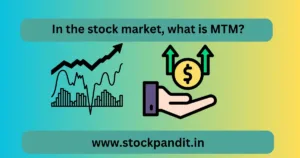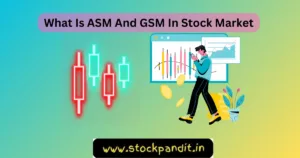To invest in NIFTY 50 for the long term, you can consider the following options:
Direct investment in NIFTY 50:
You can directly invest in NIFTY 50 by purchasing the stocks of the 50 companies that make up the index in the proportion they are represented in the index. How to Invest in Nifty 50 ETF 2024 . This can be done by opening a Demat account with a broker.
Indirect investment in NIFTY 50:
You can invest indirectly in NIFTY 50 by investing in mutual funds or exchange-traded funds (ETFs) that track the NIFTY 50 index.
You May Also Like : How to Learn Trading-Avoid 5 Mistakes
Choosing between Index Funds and Exchange Traded Funds (ETFs):
Both index funds and ETFs can track the performance of the NIFTY 50 index. However, ETFs can be traded like stocks throughout the trading day.
While index funds can only be bought and sold at the end of the trading day at the net asset value (NAV) price. You can choose between the two based on your investment goals and preferences.
How to Invest in NIFTY 50 Index Funds ?
Here are the steps you need to follow to invest in NIFTY 50:
Open a Demat Account: The first step to investing in a NIFTY index fund is to open a Demat account, which is an electronic account that holds your shares and other securities.
You can open a Demat account with a registered Depository Participant (DP) of the National Securities Depository Limited (NSDL) or Central Depository Services Limited (CDSL).
You May Also Like: NPA Meaning in Banking
How to Invest in Nifty 50 ETF 2024: Choose a Broker

Once you have a Demat account, you will need to choose a broker who can execute your trades on the stock exchange. Look for a broker who offers low brokerage fees and has a good reputation.
Fund the Account:
Before you can start trading, you will need to fund your Demat account. You can transfer money to your account through online banking or by depositing a cheque at the bank.
Place an order:
Once your account is funded, you can place an order to buy NIFTY 50 shares. You can do this through your broker’s online trading platform or by calling your broker.
Make sure to check the current price value of NIFTY 50 before placing your order, and you can even set a limit order if you want to buy shares at a specific price.
You May Also Like : Unveiling Piotroski Score’s Power
Multiple Ways to Invest in NIFTY 50
You can invest in stocks in NIFTY 50 in multiple ways. Some of them are as follows:
Invest in NIFTY 50 via ETF
NIFTY 50 ETFs can be an easy way to invest in the NIFTY 50 index. You can buy and sell these ETFs just like any other stock on the stock exchange.
They aim to replicate the performance of the NIFTY 50 index, providing investors with exposure to the entire index through a single security.
Invest via Index Funds
Another way to invest in the NIFTY 50 can be through index funds. Index funds are mutual funds that track the NIFTY 50 performance.
NIFTY 50 index funds invest in the same 50 stocks as the NIFTY 50 index and aim to replicate its performance.
Invest via NIFTY Derivatives
You can also invest in the market NIFTY 50 through derivatives such as futures and options. Derivatives can be defined as contracts that derive their value from an underlying asset, in this case, the NIFTY 50 index.
However, investing in derivatives can be considered more complex and riskier than investing in ETFs or index funds.
Rebalancing of NIFTY 50
The NIFTY 50 index is rebalanced twice a year, in March and September, to ensure that it accurately represents the performance of the Indian stock market.
The rebalancing process involves removing companies that no longer meet the index criteria and adding new companies that meet the eligibility requirements.
The criteria for inclusion in the NIFTY 50 index include market capitalization, liquidity, and trading frequency, among other factors.
How can I invest directly in NIFTY 50 ?
You can invest directly by purchasing stocks of the 50 companies in the index through a Demat account.
What’s an alternative to direct investment in NIFTY 50 ?
You can opt for indirect investment via mutual funds or ETFs tracking the NIFTY 50.
What’s the difference between Index Funds and ETFs tracking NIFTY 50 ?
ETFs are tradable like stocks during the day, while index funds trade at the day’s end at the NAV price.
What are the steps to invest in NIFTY 50 Index Funds?
Open a Demat account, choose a broker, fund the account, and place an order for NIFTY 50 shares.
How do I open a Demat account ?
Contact a registered Depository Participant (DP) of NSDL or CDSL.
What should I consider when choosing a broker for NIFTY 50 investments ?
Look for low brokerage fees and a good reputation.
How can I fund my Demat account ?
Transfer funds through online banking or deposit a cheque at the bank.
What’s the best way to place an order for NIFTY 50 shares ?
Use your broker’s online trading platform or call your broker, considering the current price and using limit orders if necessary.
What are the various ways to invest in NIFTY 50 ?
You can invest through ETFs, index funds, or derivatives like futures and options.
How do NIFTY 50 ETFs work ?
They function like stocks on the exchange and aim to replicate the NIFTY 50 index’s performance.
What’s the concept behind NIFTY 50 Index Funds ?
These mutual funds mimic NIFTY 50’s performance by investing in its 50-component stocks.
What are NIFTY Derivatives, and how do they differ from ETFs and index funds ?
Derivatives derive their value from the NIFTY 50 index and involve higher complexity and risk.
How often is the NIFTY 50 index rebalanced ?
It’s rebalanced twice a year, in March and September.
What’s the purpose of the rebalancing process in the NIFTY 50 index ?
To ensure the index accurately reflects the Indian stock market performance by adding/removing companies based on specific criteria.
What criteria determine inclusion in the NIFTY 50 index ?
Market capitalization, liquidity, trading frequency, and other factors are considered.
Are there specific months when I should reconsider my NIFTY 50 investments ?
Rebalancing in March and September might warrant a review of your investment strategy.
Can I invest in NIFTY 50 without a broker ?
No, investing directly typically requires a broker’s services.
What are the risks associated with investing in NIFTY 50 derivatives ?
Derivatives involve higher complexity and risk compared to ETFs or index funds.
How does NIFTY 50’s performance compare to the broader stock market ?
The NIFTY 50 represents a cross-section of the market, giving insight into broader market performance.
Are there any tax implications specific to NIFTY 50 investments?
Consult a tax advisor as tax implications may vary based on individual
Is NIFTY 50 a good investment ?
Nifty Total Market Index funds are a good option for investors who are looking for a low-cost, diversified investment.
They are also a good option for investors who are new to the stock market, as they are very simple to invest in
How to invest in NIFTY 50 for beginners ?
Now, there are two ways to invest in NIFTY 50. One, buy stocks directly in the same percentage as their weightage in NIFTY 50.
The second option is to invest in Index Mutual Funds that track NIFTY 50. These index Mutual Funds replicate the NIFTY 50, i.e., have a portfolio precisely like the index.
Can I buy NIFTY 50 directly ?
Investors can invest directly in Nifty 50 Index Funds through mobile applications offered by asset management companies.
After downloading the respective mobile app, register by providing the necessary contact information. Complete the e-KYC procedure, and then start investing.
Is Nifty 50 safe for the long term ?
However, Nifty 50 can also be used as a long-term investment vehicle, especially for those who do not have the financial knack that is required to handpick strong companies for their portfolio.






